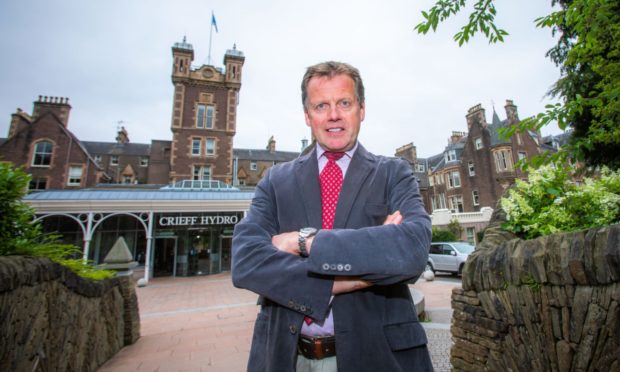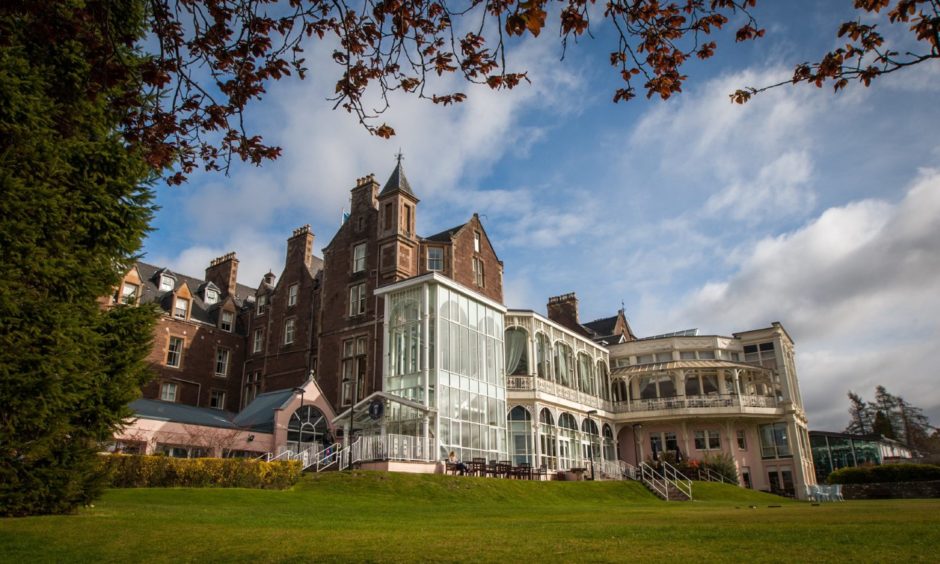The owner of Crieff Hydro said the company is investing for the future despite a Covid hit to revenues of more than £20 million.
The group, which owns six hotels, expected sales to grow last year until the onset of Covid-19.
Despite trading for every day it was legally allowed, restrictions meant its hotels closed for 25 weeks of its financial year, which ended on February 28 2021.
Revenues that were £32.9 million in 2019/20 fell to just £12.1m last year.
Scotland’s oldest registered company, recorded a pre-tax loss of £3.2m. This compares to a profit of £1.2m in the previous year.
‘Drastic’ impact of Covid at Crieff Hydro
Chief executive Stephen Leckie said the impact of Covid was “drastic” and caused it to increase its borrowing facility by £5m.
But though the financial impact of the pandemic had been painful, it had not stopped investments for the future.
Mr Leckie said: “Lockdown had a huge impact on hotels and the people working in them across the country. We are no exception.
“But we used the lockdown to plan for the future.
“Before and during the pandemic we’ve continued to invest in what’s on offer to our guests and invest in our people.
“Whether that’s in refurbishing bedrooms or adding new facilities. That’s the key to long-term sustainability.”
Investment in Crieff Hydro group
As well as Crieff Hydro, the company owns Murraypark Hotel, Peebles Hydro, The Park in Peebles, the Ballachulish Hotel and the Isles of Glencoe Hotel and Leisure Centre. The investments have been significant.
Mr Leckie, whose family have run the business since 1868, said Ballachulish Hotel has been refurbished “top to bottom”.
Peebles Hydro was having the finishing touches completed to a restoration of its grand Victorian ballroom.
“That’s just the nuts and bolts,” Mr Leckie said.
“With people looking for more to do we’ve added a great adventure fort in Crieff and paddleboarding in Glencoe.”
Crieff Hydro also manages Kings House Hotel and Bunkhouse in Glencoe and Taypark House in Dundee for their owners.
Challenges faced but long-term optimism
The firm made a series of redundancies last summer. The accounts show a reduction in the group’s average monthly headcount from 827 to 744 staff.
But the hotels have subsequently struggled to recruit staff this year due to the impact of Brexit.
The accounts said the points based immigration policy was one of the issues causing “adverse economic conditions”.
Other challenges for the hotel sector were listed as exchange rates, rise in national living and minimum wages and political uncertainty.
“The Covid-19 pandemic has had a significant impact on the hotel sector. There is uncertainty as to how quickly it will recover,” the accounts add.
“The prosperity of the hotel sector is linked to the outlook for the national and regional economy where the directors note there remains continued uncertainty.”
Despite this, Crieff Hydro said it had “optimism about the underlying growth potential of the business”.
“The directors will continue to seek out opportunities to grow profitability,” it added.


